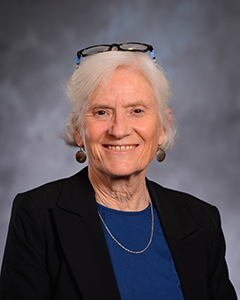by Rep. Pam Marsh
Sunday, August 4th 2019 Mail Tribune
AQI 134: Unhealthy for sensitive groups.
I’m looking at this dispiriting air quality index reading for Ashland at 11 AM on Tuesday, July 30. The Applegate and Medford are worse: 157 and 160, i.e. unhealthy. By the time you read this, I hope you are seeing better numbers.
Actually, the word “hope” is not nearly strong enough. I have been hearing from many neighbors and friends for the past five days, since smoke from the Milepost 97 fire reached us last Thursday evening. They have expressed their feelings: fear, despair, and anger for starters. They want relief from the toxic overcast. They want to know who to blame.
I share their frustration. During the recent legislative session, I fought to add a pittance to the biennial budget, $5 or $6 million. That money would have given Oregon Department of Forestry (ODF) an additional surveillance aircraft and more wildfire management staff. The ‘ask’ included funding for risk assessment mapping and support for fuel mitigation efforts by regional collaboratives. What we got was less than a pittance: some money for the Oregon State Extension and not much more.
Would that money have made a difference this week? Probably not. The MP 97 fire started at night in very difficult terrain. The first responders were the Douglas Forest Protective Association, a top-notch outfit that is strongly supported by Roseburg Forest Products. (Much of the fire is on Roseburg and tribal lands.) Douglas FPA called ODF within hours and the State threw all of its resources into the fray. As of today, aircraft, state crews, contractors, volunteers from the region have achieved 15 percent containment and the fire is being held to just over 12,000 acres.
Still we are suffering in Southern Oregon. Oregon Shakespeare Festival (OSF) and Britt have canceled performances or moved shows to smaller indoor venues. Many of us are wearing masks. Business owners are seeing reduced revenues. Those of us with heart conditions or breathing impairments are feeling frightening effects.
All this being said, now is the time to look ahead. The MP 97 fire will soon shrink in our rear-view mirror but we face enormous challenges on the road ahead.
For starters, let’s get real. This is climate change. Southern Oregon has been getting hotter and dryer for years, for decades. That trend will continue to change conditions on the ground. We will see longer, more intense fire seasons in years to come. In fact, what we are seeing this year is a moment of relief from the heat, drought and catastrophic fires of the past several summers. But still, even with a wet winter and relatively cool temperatures, we are getting hit.
What can we do? First, continue to pursue increased fire suppression and mitigation resources. Recommendations generated by the Governor’s Council on Wildfire Response must be front and center in next year’s legislative session. We need significant forest restoration funding to protect our urban-forest interface so that our cities don’t go the way of Paradise, California.
Second, we need to adapt. We need to change our business models so that our economy can sustain smoke seasons. We need to protect our vulnerable neighbors. Kudos to Southern Oregon University for opening its recreational facilities to community members. ‘Go for it’ OSF, which is brainstorming a retractable roof or other measures to protect the Elizabethan Theater.
Then we need to join the effort to address the global forces that are putting our civilization at risk. If we are going to protect ourselves and the rest of human kind from catastrophe, every municipality, state, nation and corporation needs to help reduce greenhouse gas emissions. That includes Oregon. Thoughtful climate legislation can also produce funding for issues like forest restoration and water modernization that are impacted by the changing climate.
As you probably know, HB 2020, a first step in this direction, died in Salem last month due to partisan obstruction and undermining by a few corporate interests. So, we must begin again. I suggest that we start by reaffirming certain mutual concerns and values. Do we all want clean air? Do we all depend on clear, fresh water to drink, bathe and produce food? Do we all want to be safe from catastrophic fires? Do we accept reality: our climate is destabilizing rapidly and, as a result, all of these fundamental needs are threatened?
If you share my understanding of these basic truths, we have started building a foundation for solutions. Are you on board? If so, help spread the word.
Rep. Pam Marsh serves Oregon House District 5, southern Jackson County. She is an ex officio member of the Governor’s Council on Wildfire Response and a business owner in wildfire country.
